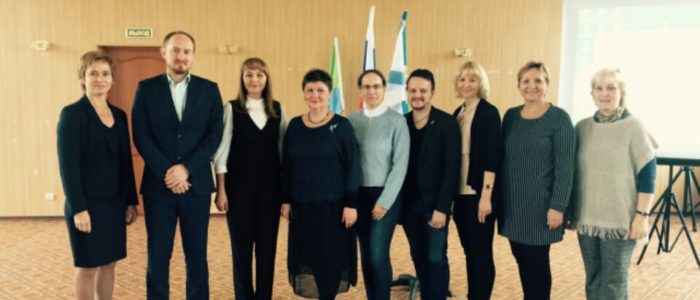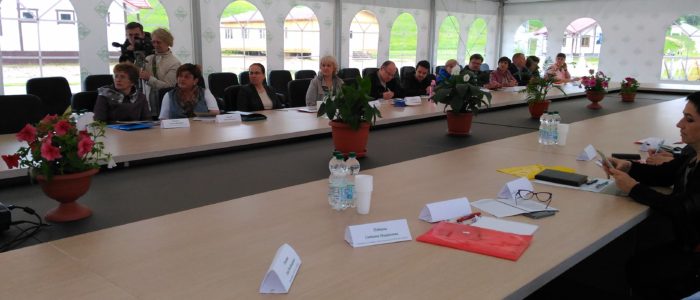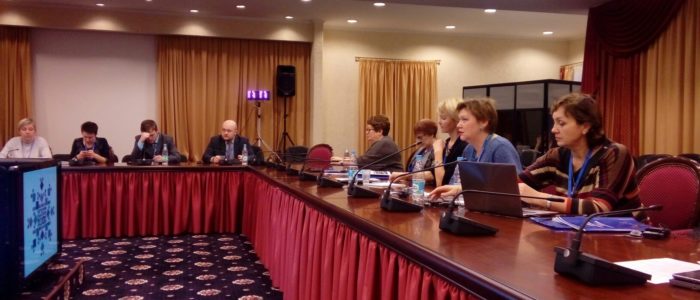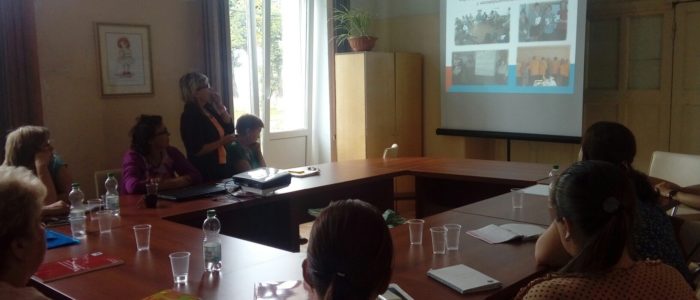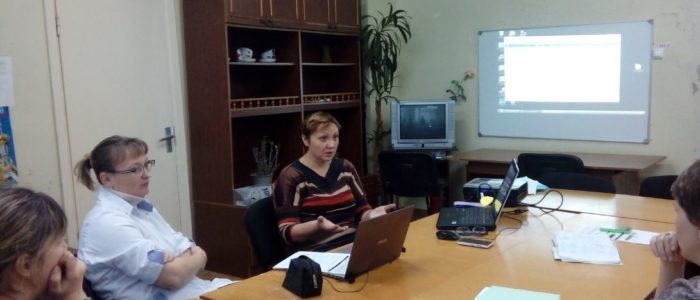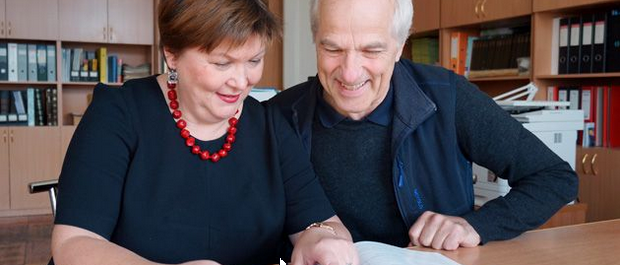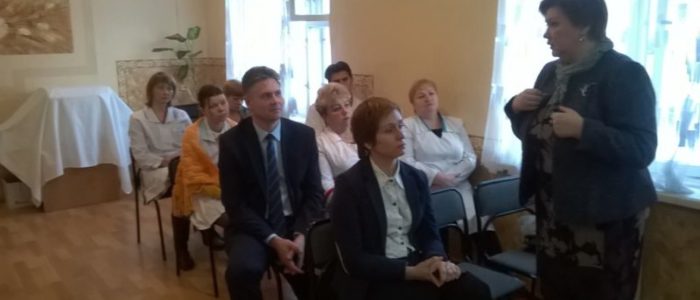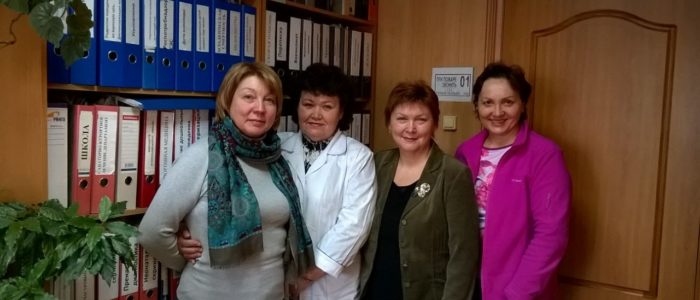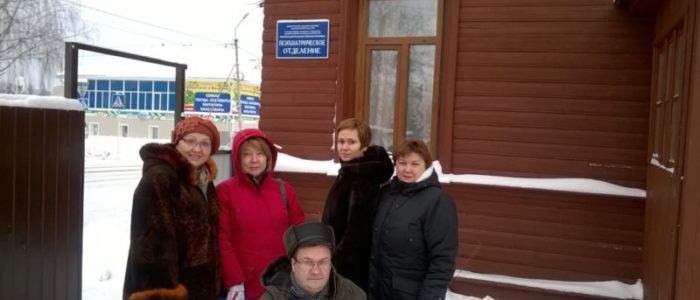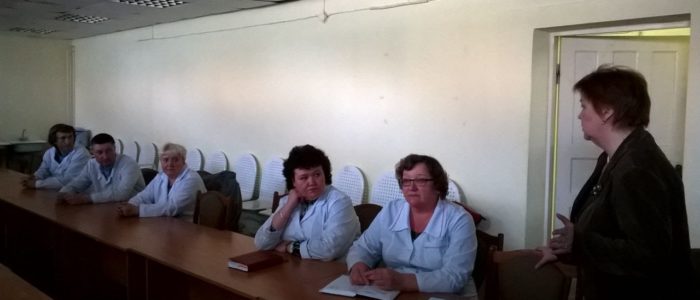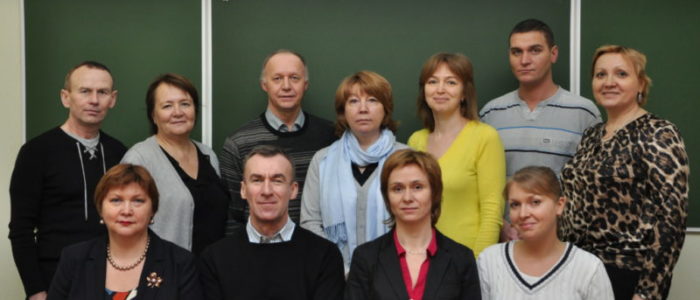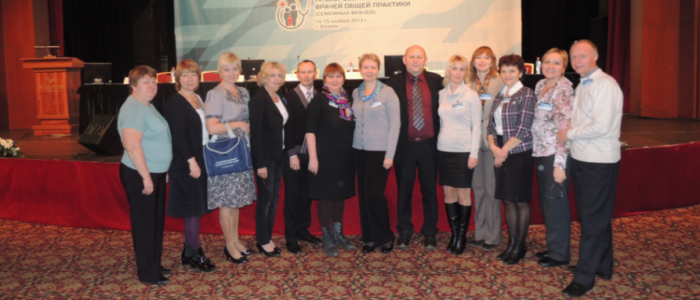Within the framework of international cooperation between the Ministry of Healthcare of the Arkhangelsk region and the University hospital Osgard in Tromsø the Russian-Norwegian project “Improving the delivery of services in the field of mental health in the Arkhangelsk region by integration of primary and specialized mental healthcare – development of the model, its implementation and evaluation” is implemented.
The Pomor model of cooperation between a general practitioner and a psychiatrist is an organization form of rendering mental health care to a patient by interaction between a general practitioner (GP) and a psychiatrist with the use of biopsychosocial approach. In this approach a GP works by using his/her own resource and constantly feels a psychiatrist’s support.
The aim and tasks of the project
The aim of the project is the creation, implementation and development of the model of collaboration between specialized mental healthcare (SMH) and primary health service (PHS) of general practitioners (GP) in the Arkhangelsk region.
Tasks of the project are improving the delivery of services of mental healthcare to the population by increasing the competence of general practitioners and gaining skills of diagnostics of mental disorders.
The implementation and development of “The Pomor model of collaboration between SMH and PHS” is caused by requirements of primary health service and specialized mental healthcare. Collaboration between specialists of primary health service and mental healthcare becomes more actual due to needs of public healthcare; the considerable part of patients with somatic diseases (20-70%) is suffered from accompanying mental disorders. The using of modern biopsychosocial approaches is necessary for qualitative rendering of medical care.
The implementation and development of “The Pomor model of collaboration between SMH and PHS” is marked by orders of rendering of medical care in case of mental insanities and behavioral disorders (The order № 566n from 17 May 2012).
“Primary specialized medical care in case of mental insanities and behavioral disorders is realized by specialists of medical organizations that perform specialized medical care interactively with other medical specialists.”
The deficiency of specialists of mental healthcare (psychiatrists) has also the large value and it influences on availability of medical care for patients with mental disorders.
The pilot model – outpatient department “Rikasikha”
The outpatient department in rural town that is located between two large cities –15 km from Arkhangelsk and 15 km from Severodvinsk- was chosen as the pilot model. The outpatient department is the subdivision of GBOH AR “Primorskaya CRH” and is financed by regional budget. Arkhangelsk is the administrative center of the region. The features of this area are scattered of settlements, island location of villages, and lack of auto transport communication with settlements during freeze-up and ice drift periods.
On general practitioner’s working area there are the distinct tendency of population aging (57% of population is older 50 years), increasing people of retirement age (37%), increasing people in the age of 80 and more (up to 8%).
In gender structure of adult population there is a greater percentage of women -57%, in senior age group (55 years and more) there is 79% of women. Age and gender structure of population is of importance because its taking- place shifts influence on the type of occurrence and spread of pathology among population, and the organization of therapeutic and prophylactic help. Psychosomatic health problems in this category are observed due to the problem of women’s loneliness. The number of patients with cognitive disorders and vascular dementia is increasing.
“The Pomor model of collaboration between SMH and PHS” has determined the task: increasing of professional competence and gaining diagnostic skills of mental disorders. Within the framework of Russian-Norwegian project co-operative educational seminars and theme refresher courses of primary health care specialists and psychiatrists, teaching practical skills, determination of competence level of primary health care doctors and psychiatrists and exchanging of experience were organized and carried out by the Ministry of Healthcare of the Arkhangelsk region and the department of family medicine and inner diseases of NSMU.
The organization and conducting regional medical theoretical and practical conferences with the participation of general practitioners and psychiatrists contribute to integration of mental health service into primary healthcare service and collaboration in multi-professional team.
Multi-professional approach
“The Pomor model of collaboration between SMH and PHS” is based on the principle of work in multi-professional team (GP, GP’s nurse, psychiatrist, psychiatrist’s nurse, psychologist and social worker) with the use of biopsychosocial approach of observation and treatment of the patient.
Methods
In this model such methods as co-operative consultations of a patient by psychiatrist, psychologist and general practitioner which enable to make joint decision about therapeutic approach of a patient are used. GP’s consultation by phone or at a face-to-face appointment, timely informing of GP about discharging patient from hospital, psychological help for family’s members aimed at preventing of acute condition, efficiency and timeliness of interaction are practiced.
General practitioner interacts with the department of social security of population and social organizations (veterans’ council, council of women, youth council) to solve social questions according to their needs.
During the first stage of implementation of the cooperation model between GP and psychiatrist the group of dispensary patients with mental disorders was formed (15, 7 per 1000 population).
During the second stage joint outpatient visits of psychiatrist, psychologist and general practitioner were organized in outpatient department and consultations of patients with mental disorders are held.
As a result, responsibility and tasks were distributed among a GP and a psychiatrist (conducting of patients in remission, in case of consultation/hospitalization, consultation by phone); three groups of patients were formed:
- The first group (18, 2%) is observed by psychiatrist, GP advises psychiatrist about family relation and social questions,
- The second group (47,7%) is jointly observed by psychiatrist and GP during joint consultative visits,
- The third group (34, 1%) is observed by GP, psychiatrist advises GP in case of need.
The model lets to redistribute responsibility for conducting and patients’ treatment with mental disorders and responsibility for streams of patients. Patients positively react to psychiatrist’s off-site form of work and joint consultation of GP and psychiatrist.
In the framework of this project general practitioners and psychiatrists of the Arkhangelsk region adapt diagnostic test instrument, i.e. structured psychiatric interview (SPIFA) for general practitioners to determine 18 different mental disorders.
Assessment, satisfaction
- General practitioners, psychiatrists and patients are satisfied with the fact that mental disorders can be detected and treated in primary healthcare,
- Patients inform about decreasing of stigma while receiving treatment by general practitioners,
- The number of hospitalization is decreasing,
- The remission of mental disorder keeps longer,
- The number of patients that receive primary healthcare is increasing.
Intermediate results
- Implementation of the model in the Arkhangelsk region’s territory is planned. At present 9 districts where infrastructure was made and 1 municipal outpatient department are ready for collaboration,
- Since 2016 information and communications technology has been used within collaboration,
- Network infrastructure in dispensary is made – “The department of competence development in the sphere of mental disorder” and local schools in remote districts within the primary healthcare service,
- Regular meetings between experts and target groups are organized,
- General practitioners’ training
- Seminars, trainings, lectures, clinical discussions, role- playing games,
- Remote Skype-conferences, web-consulting of specialists, supervisions,
- Using of NSMU for teaching general practitioners within the framework of postgraduate education.
Information dissemination about the model
- Creation of web-site project for professionals and users: http://pomormodelproekt.ru/
- Presentations of the model and results of work at regional, federal and international conferences, publications in national and international magazines.
Stability of “The Pomor model” is ensured by:
- Accordance of Federal legislation in the sphere of psychiatry and addictology,
- Accordance of the concept to programs of the development of primary health care in Russian Federation,
- Support of NSMU and the leading role that belongs to the Ministry of Healthcare of the Arkhangelsk region.



